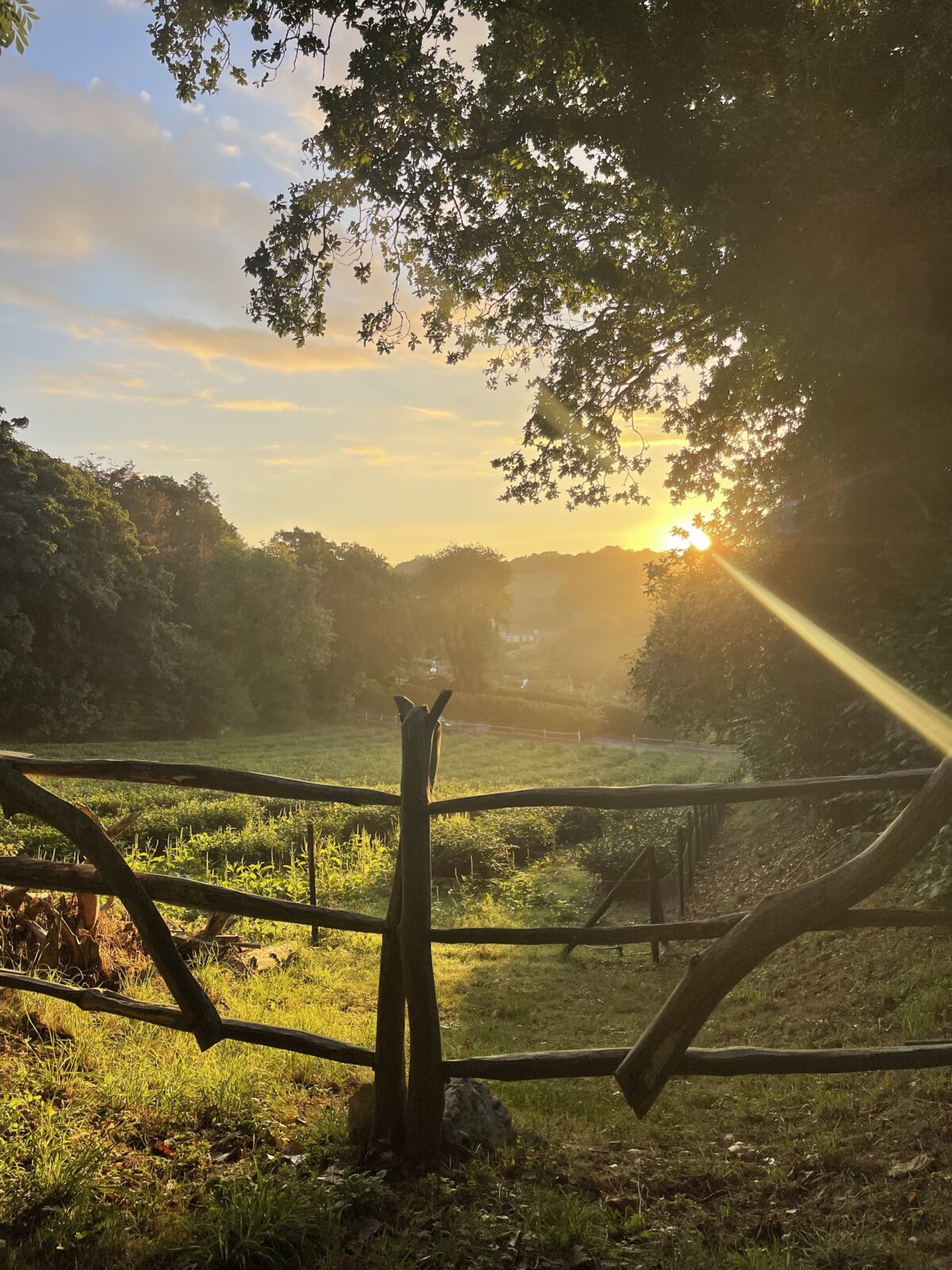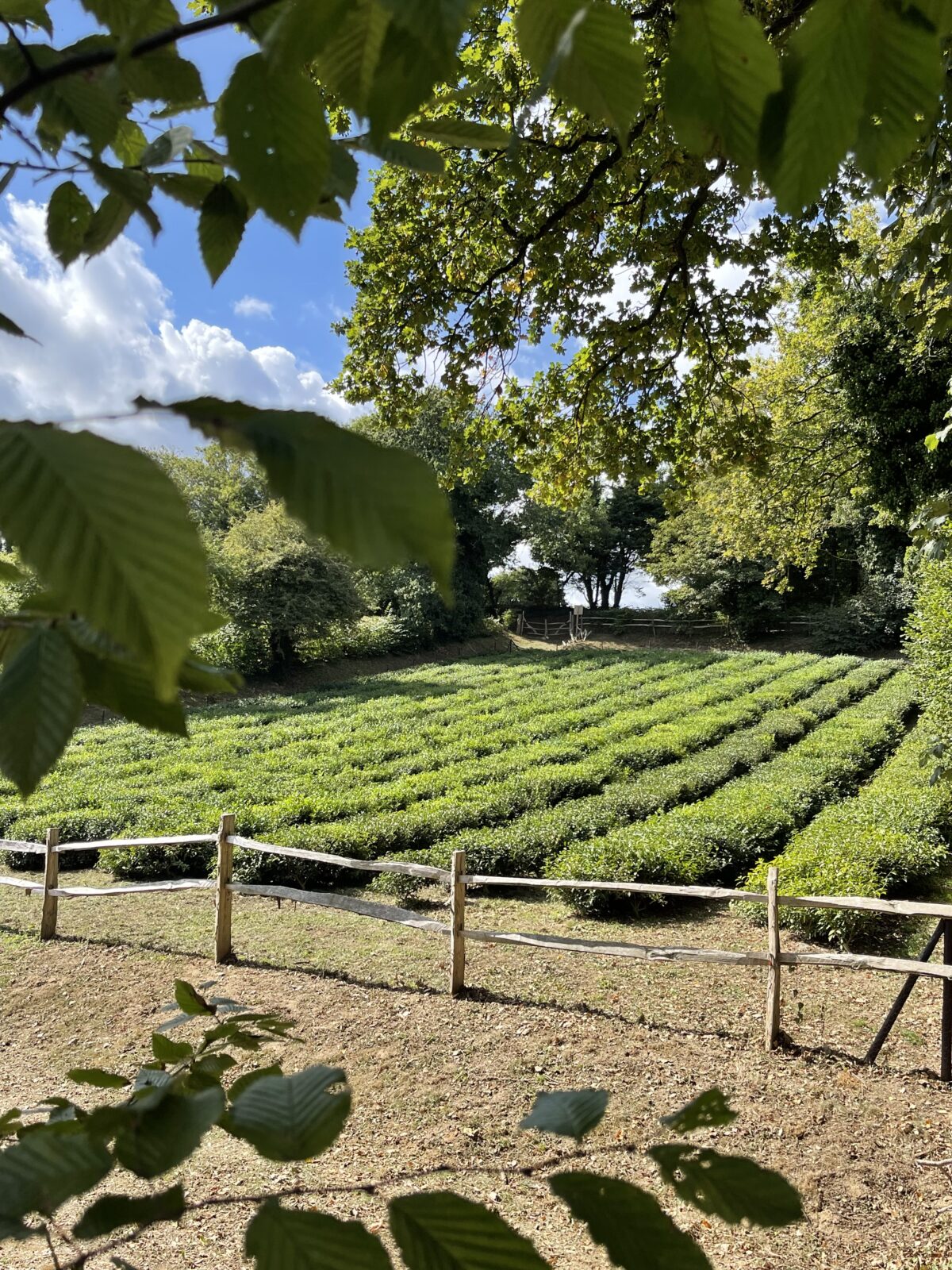We work with renowned tea experts and have built a team of passionate tea people to create our Jersey Fine Tea range.
Our first tea garden was planted in 2017, after carefully selecting the right soils and microclimates to suit the Camellia sinensis tea bush. Today we have three productive gardens in Jersey: Mrs Pipon, Simpson and Gorey Hill with others underway.
All of our tea is hand plucked using only tender new growth, before being processed by hand and with traditional tea equipment.
Once planted, a tea garden can be productive for between 60 and a 100 years. Unlike annual crops, the soil between the rows remains relatively undisturbed giving it the chance to build organic matter and natural fertility. Both the long-term plants and the undisturbed soil act as carbon sinks, absorbing rather than releasing carbon into the atmosphere.
Grass and clover mixes are sown between the rows of tea plants. This keeps weeds at bay whilst the clover, a legume, naturally fixes nitrogen into the surrounding soil and feeds the tea plants.
No herbicides are required, and the clover attracts many insects such as bees and other pollinators.
Pests and diseases are all controlled using biological controls rather than pesticides.
All the gardens are surrounded by hedges of native tree species, and new hedges have been planted as wind breaks and natural habitats for wildlife.
Inputs are limited to water and some nutrients. Drip irrigation is used to water individual rows of tea near to the roots – a very efficient system which requires much less water than traditional overhead irrigation. Nutrients in the form of liquid based plant feeds are also applied through the irrigation water. These are much more efficient than solid fertilisers, making only a low dose necessary.
Stored correctly, our loose-leaf teas will keep for up to three or four years, although they are best consumed within six months of opening.
Unlike most teabag teas, our whole-leaf teas can be steeped multiple times with a flavoursome cup each time, and giving great value for money.
As our teas are all loose, the leaves can be safely composted at home. On the contrary, teabag could contain any of the following: plastic, staples, paper, bleach, corn, starch, glue, chemicals, cotton.
When all loose-leaf tea requires is a teapot to be brewed, this seems an unnecessary waste of resources.
Very little plastic is used in the production of our tea.
At the moment our stand-up-pouches do contain plastic. However, when we are able to switch to an alternative that properly protects our tea from humidity, light and odours, all of which degrade tea, we will.


By signing up, you accept the terms of Jersey Fine Tea’s Privacy Policy and consent to receive our emails. You can unsubscribe at any time.